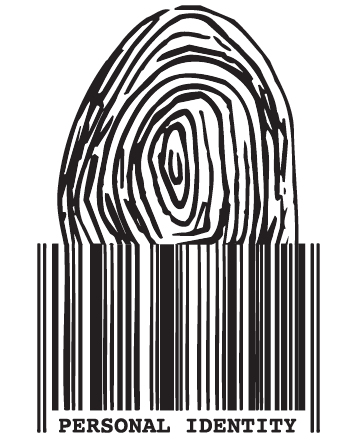What Is The Apps Act of 2013
Monday, October 7, 2013

|
Adam Grant |
Finally, Congress is talking about the country’s concerns over privacy and is considering new legislation directly impacting mobile app developers. On May 9, 2013 Rep. Hank Johnson introduced The Application Privacy, Protection, and Security Act of 2013. According to Rep.
Johnson’s summary, “The APPS Act would require that app developers maintain privacy policies, obtain consent from consumers before collecting data, and securely maintain the data they collect.”
The purpose of this article is to unlock the meaning behind the legalese and tell all mobile app developers what they need to know.
DOES THE APPS ACT
APPLY TO YOU?
Does this law apply to every
mobile app? No. It only applies to
mobile apps that collect personal
data about a user. If your mobile
app does not collect personal data,
you can stop reading this article and
find something else to amuse you
for the next few minutes. On the
other hand, as virtually every mobile
app collects some form of personal
data, reading the rest of this article
is likely a better idea.
So the real question is: What is the definition of “personal data” according to the APPS Act. A simple question, but the problem is, at least at this point, the answer is not so simple. According to the APPS Act, personal data “shall have the meaning given such term by the Commission (the Federal Trade Commission) by regulation, except that term shall not include de-identified data.”
So what type of “finger print” does the FTC currently think is personal data? There are a number of sources to look at for that information. In February 2013, the FTC issued a report entitled, Mobile Privacy Disclosures; Building Trust Through Transparency, http://www.ftc.gov/os/2013/02/1302 01mobileprivacyreport.pdf.
In the report, the FTC discusses the efforts of the National Telecommunication and Information Administration (NTIA) to develop a code of conduct, which will assist in mobile application transparency. The FTC report states, “to the extent that strong privacy codes are developed, the FTC will view adherence to such codes favorably in connection with its law enforcement work.” In other words, if a mobile app developer complies with the code of conduct, the FTC might not prosecute.
As of April 2, 2013, the code of conduct requires a privacy notice when an app collects the following types of data: biometrics (info about your body, including fingerprints, facial recognition, signatures and/or voice print), browser history, text log, contacts (including social networking connections), financial information, health/medical/therapy information, location or user files (files stored on the device that contain your content). So, “What is personal data?” According to the FTC, the answer appears to be…. everything about a person.
If personal data is virtually everything, then what does the FTC think is “de-identified data?” Why is this important? Because, if an app collects information that can’t reasonably be used to identify or infer information about a particular person or mobile device, then no privacy notice is required! Of course, the APPS Act uses vague words like, “can’t reasonably be used to identify,” or “reasonable level of justified confidence,” which do not engender much confidence with anyone when they are trying to determine whether they are complying or not with a Federal law.
Privacy law as it applies to health information allows for two methods to identify whether you are dealing with de-identified data. First, you can have an expert give you an opinion that the data has been “deidentified.” Second, which is called the “safe harbor,” requires that the developer remove all kinds of personal identifiers, like addresses, names and zip codes from the personal data. Of course, if you “deidentify” the information, then it becomes less valuable to the apps owner.
WHAT DOES
THE APPS
ACT REQUIRE?
The APPS Act requires the
mobile app developer to develop a
privacy notice which tells the user
what data was taken, what the data
will be used for and to whom the
data will be shared with after it has
been collected. The policy must also
tell the user about the app’s data
retention policy, including how long
the data will be stored and how to
delete or opt out of the data collection.
The key to compliance is to obtain the user’s consent, before collecting personal data. Thus, the app should provide notice to the user, before the app is downloaded. Given the vague nature of the law’s requirements, at least at this point, obtaining consent before a user download’s the app is the safest way to comply.
The notice should also provide a clear and easily accessible way to withdraw consent. In a recent California case, the Attorney General for the State of California alleged that a privacy notice was not reasonably accessible when it was contained only on Delta’s website, but not in the actual app, “Fly Delta.” While this case is still winding through the court system, it should provide some guidance to how accessible a privacy policy should be to avoid legal issues.
Once the app obtains the personal data, the APPS Act requires the developer prevent access to the data. All that the law currently requires is that “reasonable and appropriate measures” are used to prevent un-authorized access to the personal data and de-identified data. You can certainly speculate that, as drafted, the current law leaves wide open what is or is not appropriate safeguards.
If data has been lost after the APPS Act becomes law, this section will likely be a heavily litigated area. Did the developer design the app with sufficient security measures? Did the app’s owner modify the security measures? Given the everchanging nature data security, what was “reasonable” at one time, is likely going to be unreasonable the following week.
As if it was not confusing enough, the APPS Act still requires mobile app developers to comply with other Federal and State laws. For example, compliance with the APPS Act does not relieve compliance with the Children’s Online Privacy Protection Act (COPPA) at the Federal level, or even the California Online Privacy Protection Act (CalOPPA) at the State level. However, when determining whether to follow the APPS Act or State law, the APPS Act will apply, but only when the APPS Act provides a higher level of transparency, user control, or security of personal and de-identified data than the State law.
THE ULTIMATE SAFE
HARBOR: NTIA’S CODE
OF CONDUCT
The Apps Act does exempt
mobile app developers from complying
with its provisions, so long as
the company complies with the
enforceable code of conduct agreed
upon through the NTIA’s multistakeholder’s
process. In June 2012, the
NTIA announced the goal of the first
multistakeholder process was to
“develop a code of conduct to provide
transparency in how companies
providing applications and
interactive services for mobile
devices handle personal data.”
As of April 30, 2013, NTIA published
a draft of conduct. Currently,
the code of conduct requires short
form notices include information
similar to the APPS Act. The code
does give examples of third parties
with whom data may be shared
which require disclosure. The code
also provides insight into the design
of the notice. In addition to requiring
a short form notice, the code
requires linkage to long form
notices.
The process of drafting the code is set to continue throughout the year in meetings occurring 2013. Thus, while the code has not been set yet, leaving mobile app developers to wonder how and if they will be exempt, the APPS Act of 2013 has yet to enacted into law – so there is time.
WHO AND HOW WILL THE
APPS ACT BE ENFORCED?
The FTC will enforce the APPS
Act under sections prohibiting unfair
or deceptive acts or practices. A
state Attorney General, can enforce
the APPS Act through a federal civil
action. However, a state could not
file a civil action if a federal action is
already pending. However, given the
recent dismissal of a case brought
by California’s Attorney General
against Delta Airlines, there is
another possible agency, which may
enforce the APPS Act. According to
a California court, the Department of
Transportation, not the State of
California, regulates how airlines
communicate with their customers,
even if the customers are in
California.
WHAT DOES THE
FUTURE HOLD?
At this point, neither the APPS
Act of 2013 or NTIA’s code of conduct
must be complied with until
2014. The APPS Act must proceed
through the usual legislative
process. There is a chance, of
course, that it may not ever become
law. The best course of conduct for
mobile app developers is to insure
they provide input at the committee
level during the legislative process.
Additionally, monitoring the results of
NTIA’s meetings
will likely be highly informative.
This content is made possible by a guest author, or sponsor; it is not written by and does not necessarily reflect the views of App Developer Magazine's editorial staff.

Become a subscriber of App Developer Magazine for just $5.99 a month and take advantage of all these perks.
MEMBERS GET ACCESS TO
- - Exclusive content from leaders in the industry
- - Q&A articles from industry leaders
- - Tips and tricks from the most successful developers weekly
- - Monthly issues, including all 90+ back-issues since 2012
- - Event discounts and early-bird signups
- - Gain insight from top achievers in the app store
- - Learn what tools to use, what SDK's to use, and more
Subscribe here











